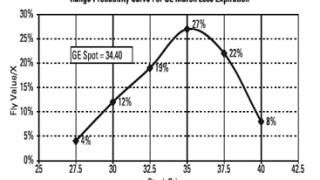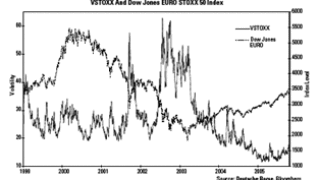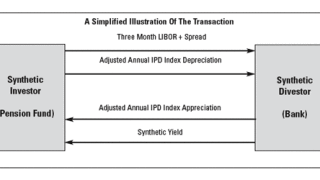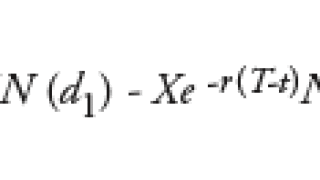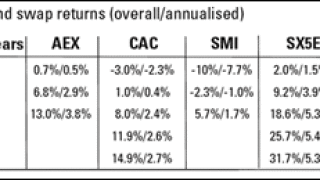Learning Curve
-
The complex security design of collateralized debt obligations is arranged and administered like a managed fund, allowing issuers to refinance the purchase of debt instruments by repackaging them into different slices of risk and maturity.
-
As popular as synthetic collateralized debt obligations have become, modeling and pricing these securities continues to provide a number of unique challenges.
-
The Black Scholes option pricing model assumes stock prices are lognormally distributed.
-
In 2004, the International Swaps and Derivatives Association formed a committee to draft a form of credit-default swap for asset-backed securities with a view toward jump starting the synthetic ABS market.
-
In the past few months, equity volatility trading has seen an unprecedented level of interest from investors who have traditionally traded equities, bonds, currencies and other common asset classes.
-
Credit derivatives such as CDOs have become extremely popular as they represent a straightforward vehicle for credit correlation trading.
-
The 2005 Novation Protocol was published Sept. 12 by the International Swaps and Derivatives Association partly as a result of the pressure which regulators have put upon their regulated institutions to cut backlogs of trade confirmations, and partly as a result of the evolution of market practices whereby novations are not effected legally, despite the intention of the parties involved.
-
Like credit-default swaps, equity-default swaps are bilateral contracts.
-
A recent case in London's Commercial Court, Peekay Intermark v Australia and New Zealand Banking Group, highlights what can go wrong if a salesman misrepresents the nature of a product to an investor, even a sophisticated investor.
-
"Some of the U.K.'s largest investment institutions are planning to launch a property derivatives market in an attempt to put commercial property on an equal footing with other financial assets."
-
According to a 2002 report released by the U.S. Department of Commerce's National Institute of Standards and Technology (NIST), software errors (or bugs) cost the U.S. economy USD59.5 billion annually.
-
The dividend swap market has been very active and has made strong gains this year.


